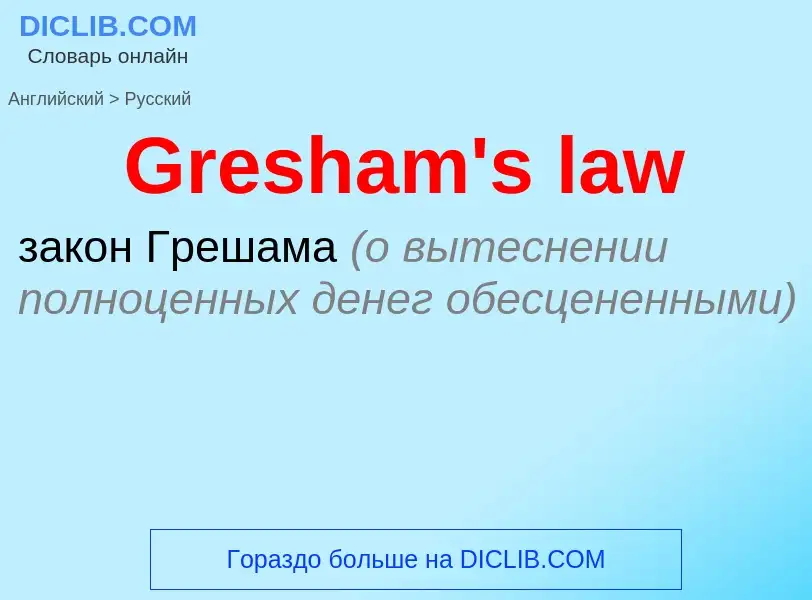Перевод и анализ слов искусственным интеллектом ChatGPT
На этой странице Вы можете получить подробный анализ слова или словосочетания, произведенный с помощью лучшей на сегодняшний день технологии искусственного интеллекта:
- как употребляется слово
- частота употребления
- используется оно чаще в устной или письменной речи
- варианты перевода слова
- примеры употребления (несколько фраз с переводом)
- этимология
Gresham's law - перевод на русский
Определение
Википедия

In economics, Gresham's law is a monetary principle stating that "bad money drives out good". For example, if there are two forms of commodity money in circulation, which are accepted by law as having similar face value, the more valuable commodity will gradually disappear from circulation.
The law was named in 1860 by economist Henry Dunning Macleod after Sir Thomas Gresham (1519–1579), an English financier during the Tudor dynasty. Gresham had urged Queen Elizabeth to restore confidence in then-debased English currency. The concept was thoroughly defined in medieval Europe by Nicolaus Copernicus and known centuries earlier in classical Antiquity, the Middle East and China.


![A stack of twenty [[Walking Liberty half dollar]]s (left), which contain 90% silver. In an example of Gresham's law, these coins were quickly hoarded by the public after the [[Coinage Act of 1965]] debased half dollars to contain only 40% silver, and then were debased entirely in 1971 to base [[cupronickel]] (right). A stack of twenty [[Walking Liberty half dollar]]s (left), which contain 90% silver. In an example of Gresham's law, these coins were quickly hoarded by the public after the [[Coinage Act of 1965]] debased half dollars to contain only 40% silver, and then were debased entirely in 1971 to base [[cupronickel]] (right).](https://commons.wikimedia.org/wiki/Special:FilePath/Two stacks of half dollars, one silver, one clad - effects of the Coinage Act 1965.jpg?width=200)
